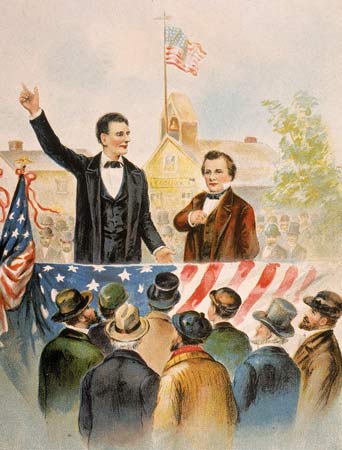• Sir:
I read with interest your report that Jeb Bush is paying $2,888 per vote. I work among men who have long provided those services for free, and we’re wondering if Mr. Bush pays that sum for each recorded vote, or just once per person.
Sincerely,
J.D. “Digger” Blagden, Jr.
Cook County Cemetery
• Defenders of James Buchanan and Bush 43 objected to my singling out the two gentlemen for censure (one pointing to Bill Clinton’s “thievery, lasciviousness, abuse of power and deceit”). First, I didn’t mean they were the only bad presidents. One thinks of Chester A. Arthur, Warren G. Harding and the two Andrews, Jackson and Johnson – and what to make of Millard Fillmore? – all of whom America survived. But I do believe that at least one criterion for evaluating a president is the state of the country at the end of his tenure – and on that score it would be hard to do worse than 1860, as Buchanan dithered on slavery while the country hurtled toward war, and 2008, after the work of the Bush-Cheney domestic and international wrecking crew. (Well, maybe there’s also a place for Mr. Hoover.)
• Dear Gillespie, wrong Epistle: 1 Corinthians 15:52: “In a moment, in the twinkling of an eye, at the last trump: for the trumpet shall sound, and the dead shall be raised incorruptible, and we shall be changed.”
• II Corinthians 3:17: It’s not two Corinthians, moron. It’s eleven Corinthians. @realDonaldTrump
Correction: A reader noted that my number of Democratic caucus goers was off by 171,109, which is embarrassing. Iowa Democrats, however, do seem to have an odd way both of counting voters and recording votes.


